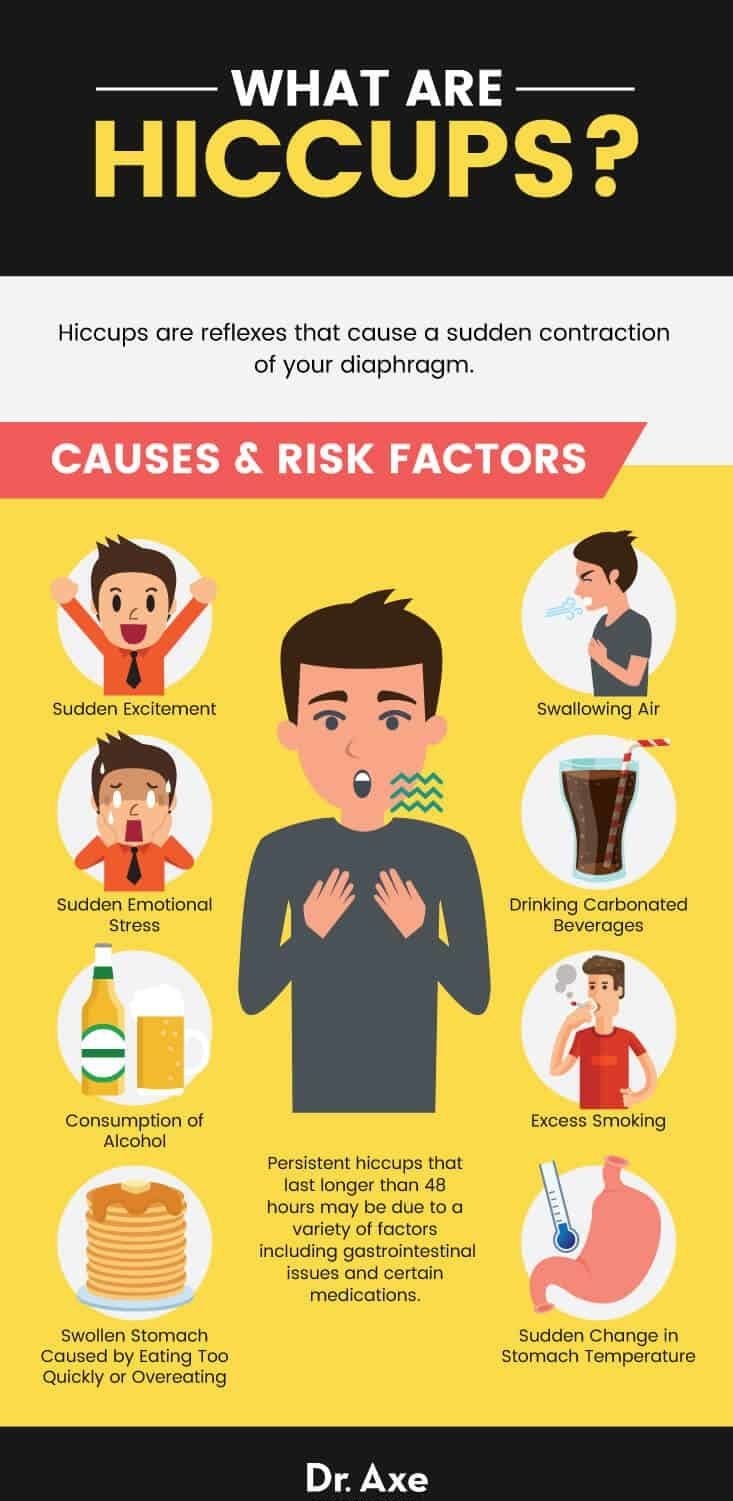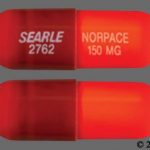
Contents
- 1 Hiccups
- 1.0.1 Causes of hiccups
- 1.0.2 Symptoms of hiccups
- 1.0.3 When to contact a doctor for hiccups
- 1.0.4 How doctors diagnose the cause of hiccups
- 1.0.5 Medical treatment for hiccups
- 1.0.6 Home remedies for hiccups
- 1.0.7 Stopping hiccups in infants and babies
- 1.0.8 Prognosis of hiccups
- 1.0.9 Complications of hiccups
- 1.0.10 Preventing hiccups
Hiccups
A hiccup is a sudden, involuntary contraction of the diaphragm muscle. When the muscle spasms, the vocal cords snap shut, producing the hiccup sound. Most cases of hiccups can be cured or resolved quickly and are rarely a medical emergency. See your doctor if hiccups last more than three hours or disturb your eating or sleeping habits.
Causes of hiccups
Most of the time, there is no obvious cause for hiccups. However, common known causes include:
- Eating quickly and swallowing air
- Eating or drinking too much, particularly fatty or spicy foods, carbonated beverages, or alcohol
- Diseases or disorders that irritate the nerves controlling the diaphragm, such as liver disease, pneumonia, or other lung disorders
- Abdominal surgery
- Strokes or brain tumors involving the brain stem and certain chronic medical disorders like renal failure
- Noxious fumes
- Sudden changes in temperature
- Fear or excitement
Some medications may also cause hiccups, such as those for acid reflux, benzodiazepines (e.g., Valium, Xanax, Ativan), or levodopa, nicotine, and ondansetron (Zofran).
Symptoms of hiccups
The only symptom of hiccups is a sudden, forceful movement of the diaphragm that produces the hiccup sound.
When to contact a doctor for hiccups
Most cases of hiccups resolve themselves quickly and are not a medical emergency. See your doctor if hiccups last more than three hours or disturb your eating or sleeping habits.
Seek medical attention if hiccups are associated with abdominal pain, fever, shortness of breath, vomiting, coughing up blood, or the feeling of throat closure.
How doctors diagnose the cause of hiccups
The diagnosis of hiccups is usually based on a physical evaluation. Blood tests or X-rays are typically unnecessary unless hiccups are a symptom of an underlying medical condition.
Specialties of doctors who treat hiccups
Hiccups generally go away on their own and usually do not require medical treatment. However, if hiccups last more than three hours or disturb eating or sleeping, you may see your primary care provider (PCP), such as a family practitioner, internist, or pediatrician.
Depending on the underlying cause, different specialists may treat hiccups. For example, a neurologist may be consulted if the cause is a stroke or other neurological disorder, a gastroenterologist for acid reflux, or a pulmonologist for lung disease or pneumonia.
Medical treatment for hiccups
Most hiccups stop on their own, and home remedies are usually sufficient. However, for persistent hiccups lasting more than three hours, you may need to contact your doctor.
- A "hiccup bout" lasts up to 48 hours
- "Persistent hiccups" continue for more than 48 hours, up to 1 month
- "Intractable hiccups" last longer than 1 month
Severe, chronic hiccups may require prescription medications such as chlorpromazine (Thorazine), baclofen (Lioresal, Gablofen), haloperidol (Haldol), metoclopramide (Reglan), or other muscle relaxants, sedatives, analgesics, or stimulants. Phrenic nerve surgery, a treatment of last resort, is rarely performed and used only when other treatments are ineffective.
Home remedies for hiccups
There are numerous home remedies for hiccups. You can try these methods to get rid of hiccups:
- Gargling with water
- Using a cold compress on your face
- Breathing into a paper bag
- Blowing up a balloon
- Drinking a glass of water quickly
- Having someone frighten you
- Pulling hard on your tongue
- Biting on a lemon
- Gargling with water
- Drinking from the far side of a glass
- Taking deep, slow breaths
- Sitting down and pulling your knees to your chest for one minute
- Using smelling salts
- Placing a half teaspoon of dry sugar on the back of your tongue (repeat three times at two-minute intervals with corn syrup, not sugar, for young children)
Stopping hiccups in infants and babies
Hiccups in newborns, infants, and babies are common and generally of no concern. If hiccups occur during feeding, pause until they go away. Changing the position of the infant or baby, burping, or calming them down can help stop the hiccups. Sometimes, resuming feeding will also stop the hiccups. If your baby frequently has hiccups during feedings, try feeding them when they are relaxed and not overly hungry. Contact your pediatrician if your child’s hiccups worsen or upset them.
Prognosis of hiccups
Hiccups are usually harmless and short-lived. Their beneficial role is supported by studies that suggest they help exercise breathing muscles, even occurring in the womb.
Complications of hiccups
Complications from hiccups are extremely rare, as most cases resolve themselves or with self-administered treatments. In severe and persistent cases, weight loss or sleep disturbances may occur. Rarely, cardiac arrhythmias and gastroesophageal reflux disease (GERD and GER) have been observed. Prolonged hiccups can lead to several ill-effects such as disturbed sleep, difficulty eating and drinking, pain, fatigue, difficulty speaking, pharyngitis (sore throat), stress, anxiety, disturbed mood, and fainting. They may also interfere with recovery or wound healing after surgery.
Preventing hiccups
While hiccups cannot always be prevented, avoiding overeating, eating quickly, or drinking excessively can help reduce their occurrence.
Wilkes, G., et al. "Hiccups Treatment and Management." Medscape. Dec 29, 2017. .
Wilkes, G., et al. "Hiccups Treatment and Management." Medscape. Dec 29, 2017. .


